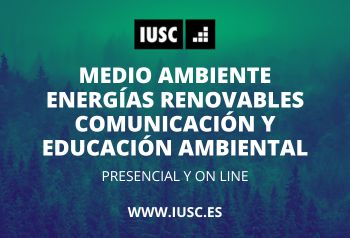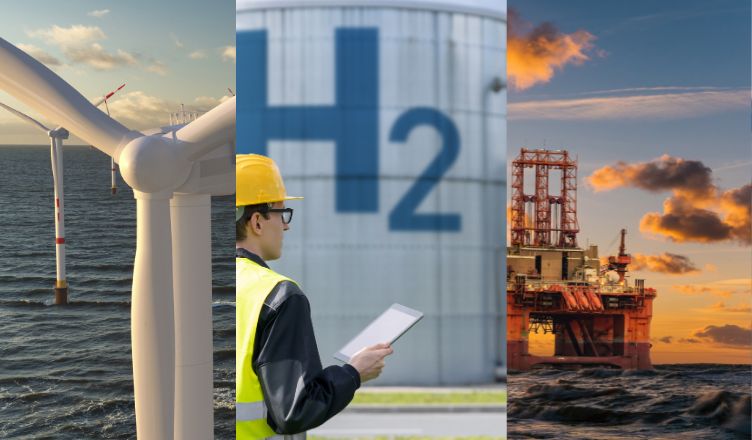He The ATRIC 4.0 project aims to develop new solutions to respond to one of the current challenges facing cities and industry, namely ensuring effective waste recycling and recovery systems. With Acciona’s support, it will have new process technologies, AI and industrial symbiosis, which will maximize combustion waste recovery in the infrastructure sector and reduce CO₂ emissions.
He The OCEANH2 project proposes to develop offshore green hydrogen production, storage and distribution plants thanks to wind and photovoltaic energy sources. This project is funded thanks to the “Science and Innovation Missions” program of the Center for Industrial Technological Development.
Projects supported by Acciona
Researchers from Loyola University recently completed their contributions to two major consortia led by Acciona Construction and Acciona Industrial, as one of the associated research centers supporting the evaluation of new technologies and cleaner and more sustainable energy processes, both ecologically and economically.
In this way, the collaboration between university and industry established in 2020 makes progress possible transformation of the industry towards a more sustainable, efficient and digital model through the valorization of its waste the ATRIC4.0 projector in the production of green hydrogen with the efficient combination of wind and photovoltaic energy sources from a floating platform with the OCEANH2 project.
These are projects resulting from the collaboration promoted by Loyola Innovation Hub, the service of Loyola University that aims to help the development of sustainable, resilient and fair economic structures, based on knowledge and technology, which proves to be a meeting place at Loyola University serving the agents of the business and innovation ecosystem.


On the one hand the project ATRIC4.0 “Accelerating the transition to a sustainable, digital and circular Industry 4.0” It consists of a multidisciplinary consortium of 8 companies: ACCIONA Construction, ACCIONA Renewable Generation, ACCIONA Industrial, Tirme, Cementos la Cruz, Semantic Systems, Ceinnmat and Lenz, and 9 top-level research organizations, with extensive experience in the construction sector. , energy and digital technology.
The main goal of this project is developing innovative and technological solutions to transform industrial waste and the gas flows in products with high added value for the construction and industrial sector, with a focus on sustainability and reducing CO2 emissions.
Capturing CO2
Loyola University’s participation is led by researcher Carlos Ortiz Domínguez, director of the Engineering department and exponent of the research line in CO2 capture and storage and calcium-looping (CaL)-based thermochemical energy storage systems. It is a cyclic system capable of capturing carbon dioxide into solids that can be transported for later use as feedstock, an effective and less toxic alternative to current post-combustion capture processes in fossil fuel power generation. The activity performed consisted of experimental CO2 valorization studies together with biomass ash/slag and municipal solid waste.
The results are shown in a series of techno-economic analysis for Acciona especially about the different types of CO2 capture systems based on the Calcium Looping process for integration into biomass power plants.
Offshore Green Hydrogen
On the other hand the project OCEANH2 “Generation, storage and distribution of offshore green hydrogen” proposes the development of an innovative, modular, flexible and intelligent production factory green hydrogen and store it as pressurized gas from energy sources renewable on the high seas.
This project hybridizes wind and photovoltaic technologies floating to maximize energy production. Key challenges include the integration of subsystems, the scaling up of operations and logistics processes in a maritime environment, in addition to ensuring efficient development based on strict technical and economic requirements. The consortium, led by ACCIONA Industrial, includes 8 companies: ACCIONA Construction, ACCIONA Engineering, REDEXIS, BLUENEWABLES, TSI, WUNDERHEXICON and ARIEMA, and 12 research organizations.
Researchers from the Materials and Sustainability professorship led by Javier Brey and Francisco Monterotogether with the researcher from the Challenges for Business Growth group, Gema Gutierrezhave contributed with their experience in relation to hydrogen as an energy vector and with the financing of large sustainable energy projects.
The work carried out means: a a comprehensive analysis of the available technologies and their technical characteristics, combined with estimates of renewable energy, wind and photovoltaic energy production, to generate a green hydrogen production model from seawater. As for the storage of this renewable gas, advanced calculations have been carried out to improve commercially available solutions and optimize the flows of this hydrogen to minimize the levelized cost of hydrogen (LCOH) due to its similarity to the levelized cost of energy (LCOE) who want to represent the costs of hydrogen or electricity production under certain conditions.
The results were achieved in this way techno-economic models for Acciona Industrial in relation to the production of offshore green hydrogenits storage in innovative tanks using composite materials and its evacuation via different routes for different purposes from offshore platforms.
In this way, the close and collaborative work of researchers from Loyola University with the technical and financial teams of Acciona Industrial has been consolidated, through the Loyola Innovation Hub, in an environment of trust that has made it possible to generate new proposals along these lines with the goal of creating a more humane, fair and respectful world research, development, innovation and knowledge transfer.
The 2030 Agenda includes in its 17 Sustainable Development Goals Goal number 13 regarding “Adopt urgent action to combat climate change and its consequences», so these types of actions are in line with both the company’s apostolic preference to care for the common home and with this global action plan in favor of people, the planet and prosperity that is the 2030 Agenda.

